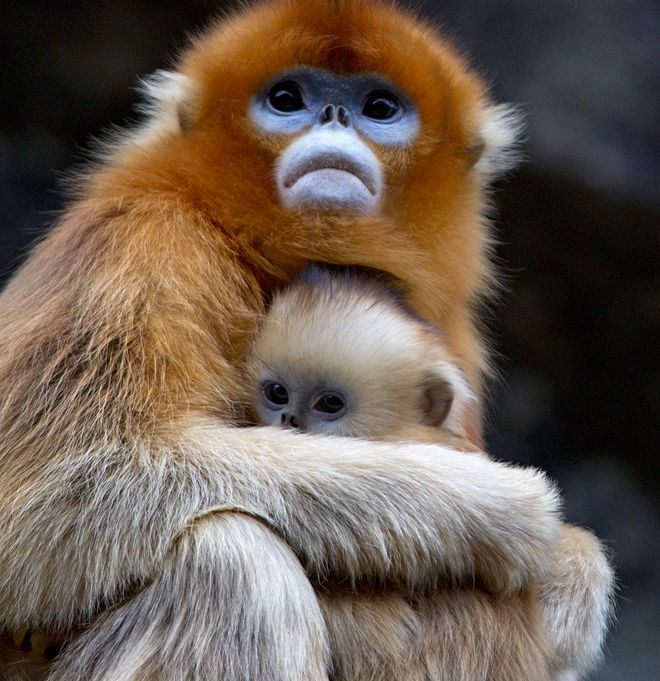OGN Monday
- Editor OGN Daily
- Sep 22, 2025
- 4 min read
Updated: Sep 23, 2025
Some tasty bite-sized chunks of positive news to get the week off to a bright start.

New Ocean Reserve
Oceanographic Magazine reports the good news that chiefs from Papua New Guinea, the Solomon Islands and Vanuatu have endorsed a proposal for the world’s first Indigenous-led ocean reserve, covering 110,425 sq. miles (286,000 sq. km) across the Bismarck and Solomon seas. “Never before have countries united across entire exclusive economic zones to enshrine Indigenous governance, constitutional authority, and ancestral stewardship as the foundation of large-scale ocean protection,” said Solomon Islands Prime Minister Jeremiah Manele.
Global Good News
An interesting global analysis by BBC Future reveals that humanity has entered the age of rewilding. The world has already passed peak farmland: cropland and pasture have been contracting since the 2000s, outpacing deforestation losses. In Europe, North America, Australia and Central Asia, abandoned pastures are reverting to grasslands and forests. Productivity gains have spared 7 million square miles (18 million sq. km) from cultivation, while synthetic fibres, sweeteners and flavourings have freed another 425,000 square miles (1.1 million km). To put that last figure into perspective, it's more than twice the area of Spain or California. Furthermore, shifting diets are sparing land too: Europe’s move from beef and lamb, to poultry and pork, has saved 77,200 square miles (200,000 sq. km). If you tot up all the square miles listed above it is larger than any single country, including Russia (the world's largest at approximately 6.6 million square miles). If these trends continue, the 21st century will mark the first time humanity leaves more nature behind than it inherited.

New Rubens Discovered
A long-lost painting of the crucifixion of Jesus Christ by Peter Paul Rubens, the 17th-century Flemish master, has been discovered in a mansion in Paris. French auctioneer Jean-Pierre Osenat was making a routine visit to the mansion, which he was preparing to sell, when he found the painting, according to Agence France-Presse. When he stumbled upon the dramatic Baroque painting, Osenat’s instincts told him that it was “an extremely rare and incredible discovery that will define my career as an auctioneer.” The moody Christ on the Cross, painted in 1613, was authenticated by Nils Büttner, a German art historian and Rubens expert who phoned to say: “Jean-Pierre, we have a new Rubens!” Born in 1577, Rubens became the most prominent painter in his country’s Baroque tradition. The artist was known for bringing historical, mythological and religious scenes to life through bold colours and depictions of dramatic movement.

Apple Wizardry
Pop in your Airpods (of the Pro 3 variety), ask Siri, and you can hear foreign languages converted into your native tongue… assuming your native tongue is English, French, German, Spanish or Portuguese. It’s not seamless, there’s a lag, but it’s still an extraordinary, under-hyped technical miracle.
Ultra-Processed Ban
In a first for the US, California has passed a bill that will legally define and then ban ultra-processed foods from school dinners. Ultra-processed foods are industrially manufactured and chemically modified additives that enhance taste, texture and appearance of food. Often they contain high levels of saturated fat, sugar and salt, and are increasingly linked to negative health effects. “In California, Democrats and Republicans are joining forces to prioritise the health and safety of our children,” said Democrat Jess Gabriel, who introduced the bill. “We are proud to be leading the nation with a bipartisan, science-based approach.”

Back From The Brink
The population of China’s golden snub-nosed monkeys has rebounded. Numbers fell below 500 in the 1980s as forests were felled and monkeys killed for fur, but decades of protection have lifted the population to over 1,600. Professor Yang Jingyuan, now the leading expert on this rare species, has spent more than 30 years helping shift local farmers from logging and hunting to forest guardianship. Today, says the BBC, forest cover has reached 96 percent and the monkeys’ family groups are flourishing.
Youth Climate Leaders
Youth-led projects tackling air pollution in Mongolia, improving river protection in Mexico, and saving a marine species in the Philippines have won a global award for their work - and money to help them scale. The Iris Prize funds young environmentalists catalysing climate action in their communities - hoping to overcome the circumstantial barriers that too often prevent young people from being able to advocate for nature-related change.
"You should be unique, you should be confident, and that's how people remember who you are. You have to be willing to share who you are and your story." Vanessa Williams
On This Day

22 September 1994: The first episode of Friends aired on NBC. The finale in 2004 was watched by more than 52 million people.
Today's Articles
High Seas Treaty: Global oceans treaty achieves threshold to become international law and help save our planet.
World's Best Tall Building: With a stunning design that includes lush greenery and multiple terraced gardens, a Singapore building has won the accolade.
Mood Boosting Video
Vicarious Adrenalin Rush: Amazing mountain biking on the Isle of Skye.



